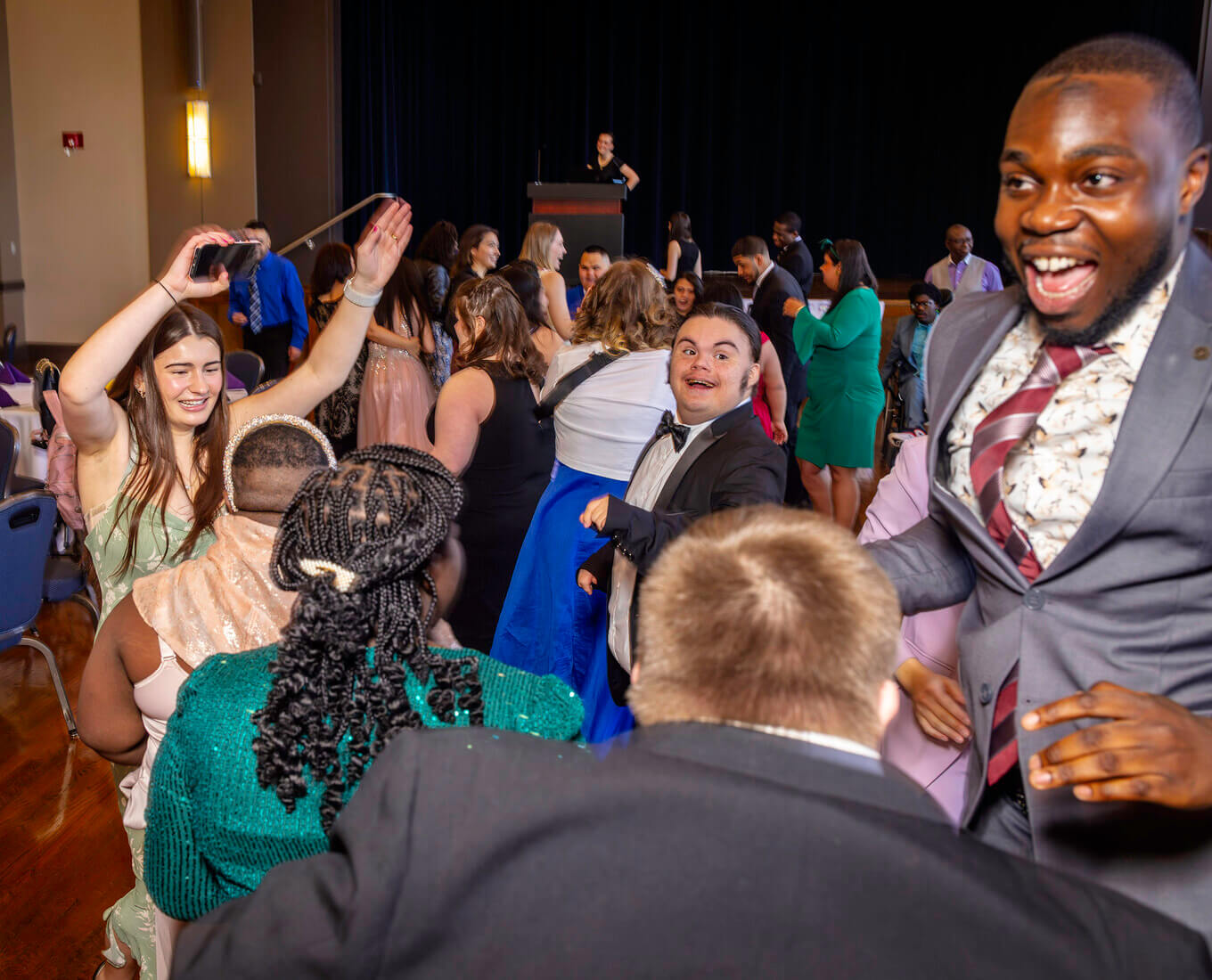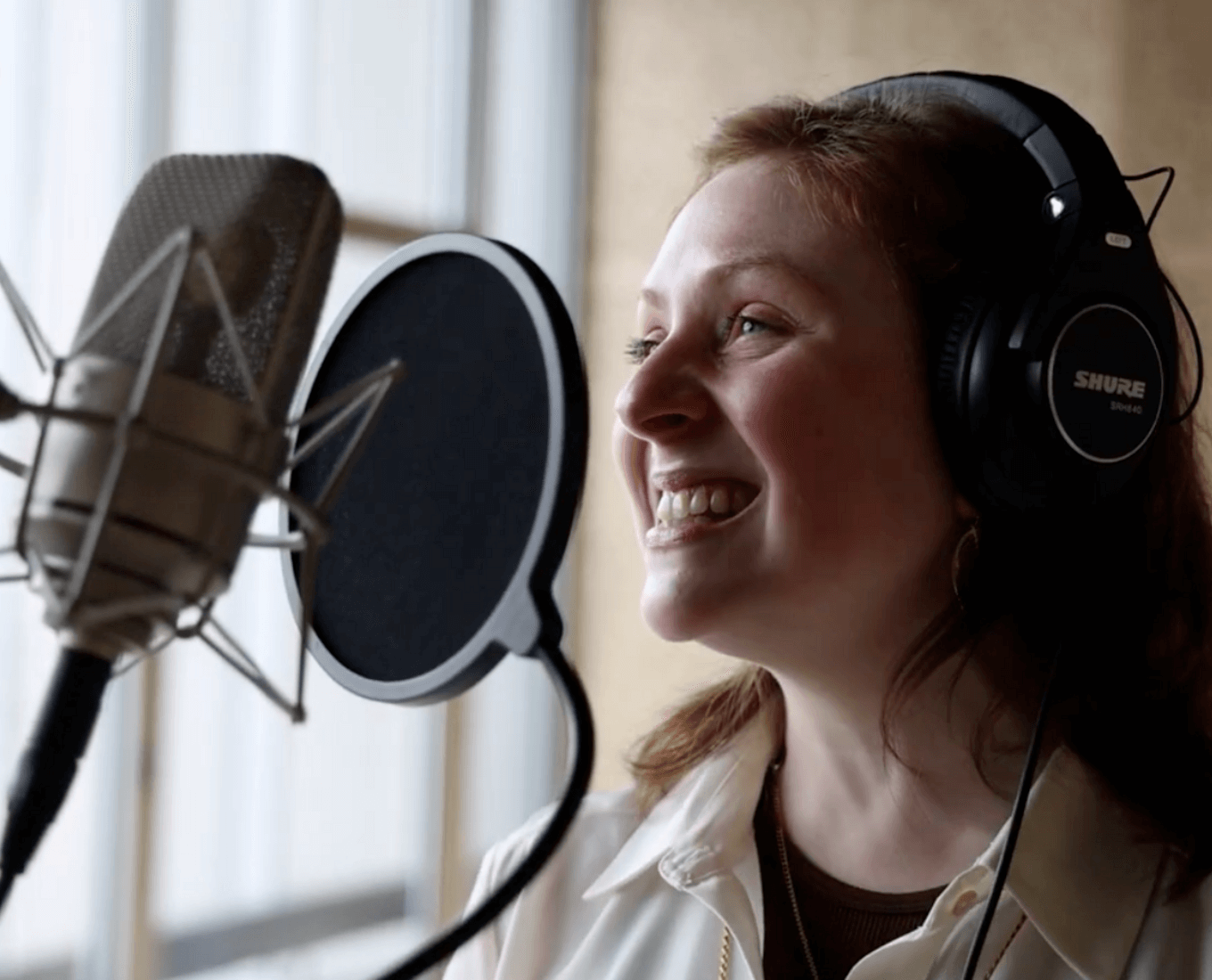
The Sanctae Crucis Award is the highest non-degree accolade that Holy Cross bestows on alumni, recognizing those who take up the College's challenge to find meaning in life and history and honor their obligations to others.
Meet this year's five honorees, each of whom has embraced the Jesuit ideal of "active engagement with the world" in their own way.
Jane F. Ryder '82
Commissioner, Massachusetts Department of Developmental Services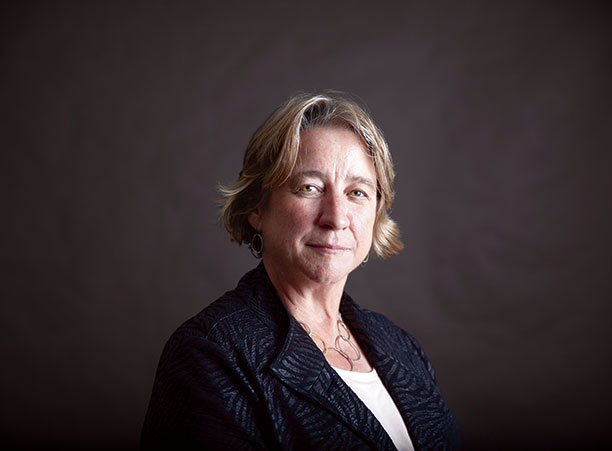
"A life devoted to public service and the common good"
You've said that your life's direction was built on lessons learned from your parents and the Jesuit education you received at Holy Cross. What did you learn from each?
My parents were public school teachers and great believers in a liberal arts education. They also believed that it was important that my older brother Mark, who was born with Down syndrome, have an active and very visible role in the life of our neighborhood, our parish and our community growing up in Worcester. At Holy Cross, we were taught that we're here for a reason and should use our gifts to contribute to the greater good.
You have been lauded for your "innate desire to make a difference and make things better for people." What is your most cherished accomplishment in this regard with respect to your time at DDS?
It is important to me that DDS is an agency that listens to individuals and their families. Currently, we support more than 41,000 individuals with a wide range of challenges, including autism and acquired brain injury, and we provide supports across their life span. Our services are person-centered and have evolved based on what we heard. Our supports include everything from providing around-the-clock care, to supporting individuals to self-determine their own services, to developing employment opportunities, to providing assistance so families who want to keep their sons and daughters at home are able.
You cite your brother Mark as a source of great inspiration. What is the most valuable lesson he has taught you?
Mark, who is now 61, is the kindest, most empathetic person I have ever met. He has the best outlook on life — he never has a bad day and always sees the good in everyone. I not only try to see the world through Mark's eyes, but I also want to be sure the families of the people DDS serves are at the table and their voices are clearly heard.
Education: A.B., political science, Holy Cross; M.P.A., public affairs, University of Massachusetts – Boston; M.P.A., public administration, Kennedy School of Government, Harvard University. Career Highlights: Massachusetts Department of Developmental Services, commissioner; Northeast Residential Services, director; Community Teamwork, deputy director; Office of Energy Conservation, Massachusetts Executive Office of Communities and Development, director. Honors: Manuel Carballo
Governor's Award for Excellence in Public Service; Department of Developmental Services Commissioner's Award; Bradford Fellowship Program for Excellence in Public Administration, Harvard University, recipient.
Benjamin Zawacki '97
Human rights researcher and advocate
"A crusader for social justice tirelessly employing your expansive intellect and generous heart to advocate for underserved populations, primarily in Southeast Asia"
You have lived your convictions in word and deed — what rewards do you find in each?
Humanitarian work is all about action — on the ground, boots dirty — and that's what I wanted, in UN refugee camps, after seven years of higher education. But the itch for more intellectual engagement never went away, which I was able to satisfy via human rights work at Amnesty, and certainly in writing a book on geopolitics.
You have noted that "the Jesuit influence is in your DNA." What does this mean?
When the most formative years of your life are spent with people for whom education and social justice are their very makeup and mission, it has a way of becoming part of your fiber, too. Put differently, the Jesuit influence became part of my hard drive, not an app I can uninstall.
You inscribed your parents' copy of your book with a single line: "Thank you for sending me to Holy Cross." What was your most important takeaway?
The idea that the liberal arts become part of the way you think. In a world that's increasingly specialized and competitive, the liberal arts allow you to make meaningful connections between seemingly disparate areas — intellectual connections, academic connections, human connections. You start to see the much bigger picture, and it makes life more fulfilling. To those wishing to make a difference in the world, you would say … Attach yourself to institutions as necessary, but ensure they're working for you and your purpose as much as you're working for them. People, not logos, effect change.
Education: A.B., history, Holy Cross; J.D., The George Washington University Law School. Career Highlights: Human Rights Program at Harvard Law School, visiting fellow; Council on Foreign Relations, term member; The Elders, policy advisor; Amnesty International, Southeast Asia researcher; United Nations High Commissioner for Refugees, expert on mission; The Asia Foundation, senior advisor. Publications: "Thailand: Shifting Ground Between the US and a Rising China" (Zed Books, 2017); "China's Belt and Road Paves Over Rules and Rights" (Asia Times, August 2019); "On Their Heels: Human Rights NGOs and the Rohingya Genocide" (Mekong Review, February 2020).
Tim Porter '68
Lawyer, musician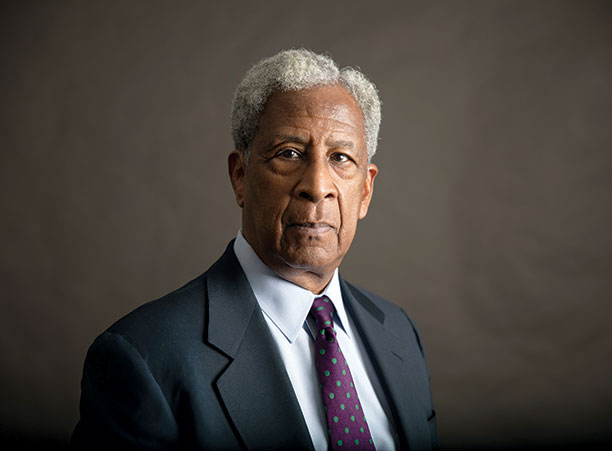
"A Renaissance man, a lover of language, law, music and theater"
You have built a rich life finding connections between seemingly disparate things. How did your time at Holy Cross teach you to look for the "wholeness of things?"
The holistic approach is the hallmark of Jesuit education — in simplistic terms, we talk of the wholeness of the spirit, mind and body. My undergraduate studies in philosophy and theology opened my mind to the "big picture." And as someone from a slightly different socioeconomic background than other Holy Cross students, I also learned to look for commonalities between myself and others.
You characterized the Sanctae Crucis Award as an invitation to discern how you continue to serve and show love to others. Any thoughts on your next chapter?
The seeds for what I do next are already there, but there are still mysteries. I don't know where I'll be led next, and that's the fun part of it.
You have said that your Holy Cross experience educated you to be a person for others. What's the most important ingredient in that formula?
Openness — to the world around you, to people, to new experiences, to the other. I had some good models for this behavior at Holy Cross, adults who showed openness and concern and a desire to serve and be with others.
You're an accomplished musician. Do you view your life as a score or a work of improvisation?
Probably more improvisational, but it's important to understand that improv is not a random assemblage of notes — it proceeds from a score and utilizes rules of harmony and musical theory. It's an outgrowth of an underlying structure. Holy Cross provided me that structure — it gave me a score of knowledge, experiences and openness on which to build.
Education: A.B., English, Holy Cross; J.D., New York University School of Law. Career Highlights: AT&T, vice president and chief counsel for labor, employment and environment; Proskauer Rose LLP, senior counsel and chief client relationship counsel; National Jazz Museum in Harlem, chairman of the board; accomplished mandolinist. Honors: Holy Cross Commerford Commencement Award 1968; David A. Rockefeller Fellow; San Francisco Bay Area NAACP Legal Defense and Education Fund Award for Humanitarian Services; YMCA of Greater New York Volunteer of the Year; Distinguished Service Award, the New School University.
Kate Curran '85
Founder, School the World
"A change agent and champion for the underserved"
You've been praised as someone who "epitomizes the College's values and beliefs and puts them into action." How do you feel that your work with School the World manifests the values and beliefs of your Holy Cross education?
My work recognizes education as an issue of social justice, which is a Jesuit value. And a liberal arts education teaches one to think critically, which I do every day in tackling the very complex problems that extreme poverty presents.
You have said that your parents instilled the concept of "giving back to something bigger than yourself" in their children. How would you like to be remembered?
As someone who made a difference in the lives of children and a contribution to the world, which I believe we all have an obligation to do.
In your acceptance speech, you noted that you had reached your goal of 100 schools and 10,000 children a year ahead of plan. What's the next stretch goal for School the World?
By 2025, we'd like to reach a goal of establishing 250 schools and educating 25,000 children in at least four countries, if not five.
What advice would you give to other Holy Cross students and alumni searching for a way to make a difference?
Think about what really moves you — what you're really passionate about — and begin.
The Sanctae Crucis Award recognizes those who "show the wider world the very best of what Holy Cross has to offer." What is that quality for you?
Two things: One, a strong liberal arts education, which teaches the value of thinking critically, and two, an education that recognizes an obligation to live a purposeful life of service to others.
Education: A.B., English, Holy Cross; J.D., Quinnipiac University School of Law, cum laude. Career Highlights: Founder and CEO, School the World, a nonprofit that, among other things, has built 100 schools serving 11,258 students in Guatemala and Honduras, empowered 6,248 parents, created 401 classroom libraries and trained 301 teachers; GE Capital, vice president of external affairs; U.S. Court of Appeals for the Second Circuit, law clerk. Honors: Network 2020 Innovator Award in Global Affairs, Humanitarian Aid; 2019 finalist, Ernst & Young New England Entrepreneur of the Year.
David Wazer, M.D. '78
Oncologist and breast cancer specialist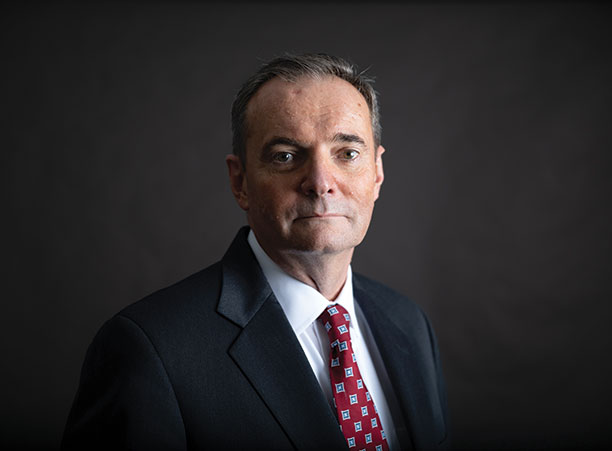
"Dedicated physician and researcher, internationally renowned for your work in advancing cancer care"
You've observed that a liberal arts education creates resilient people who can think creatively. Can you give me an example?
There is scarcely a single problem I encounter for which I can turn to a textbook for a complete answer, and adherence to rigorous scientific method coupled with creativity is a must. I am often presented with imperfect or incomplete information, must analyze it thoroughly and arrive at a decision on how best to proceed. But in dealing with the human side of caring for patients or management of staff, I am most grateful for the resilience imparted by the soulful insights of William Faulkner, the character lessons of Plutarch and the ethical guidance of Thomas Aquinas.
You're recognized worldwide as a leader in applying new technology in the treatment of cancer. How does creativity come to bear in your day-to-day work?
I love technology, especially the science that underpins it. However, technology is just a tool – the real magic happens in the process of imagination of how to use that tool to improve the lives of people.
What would you say to the next generation of Holy Cross students seeking to make a difference in the world?
To really change the world, you need to bring others along with you and that requires effective communication – orally and with the written word. These are skills that must be constantly nourished and practiced. To this day, I remain an avid student of great orators and writers.
What's the most imaginative thing you've done as a physician?
Becoming a teacher. The privilege of educating the next generation of physicians and scientists requires an enormous amount of imagination as I cultivate the special talents every individual brings to the table.
Education: A.B., chemistry, Holy Cross; M.D., New York University School of Medicine. Career Highlights: Department of Radiation Oncology, Tufts University School of Medicine, professor and chairman; Warren Alpert Medical School, Brown University, professor and chairman; Tufts Medical Center, Rhode Island Hospital, The Miriam Hospital, Women and Infants Hospital and Lifespan Health System, radiation oncologist-in-chief; Lifespan Cancer Institute, director. Publications: Principles and Practices of Radiation Oncology (Wolters Kluwer Health; seventh edition, 2018); American Journal of Clinical Oncology, editor-in-chief; Brachytherapy, Frontiers in Radiation Oncology, associate editor; Breast Diseases: A Yearbook Quarterly, associate editor.
Written by Lori Ferguson for the Winter 2020 issue of Holy Cross Magazine.
About Holy Cross Magazine
Holy Cross Magazine (HCM) is the quarterly alumni publication of the College of the Holy Cross. The award-winning publication is mailed to alumni and friends of the College and includes intriguing profiles, make-you-think features, alumni news, exclusive photos and more. Visit magazine.holycross.edu/about to contact HCM, submit alumni class notes, milestones, or letters to the editor.

